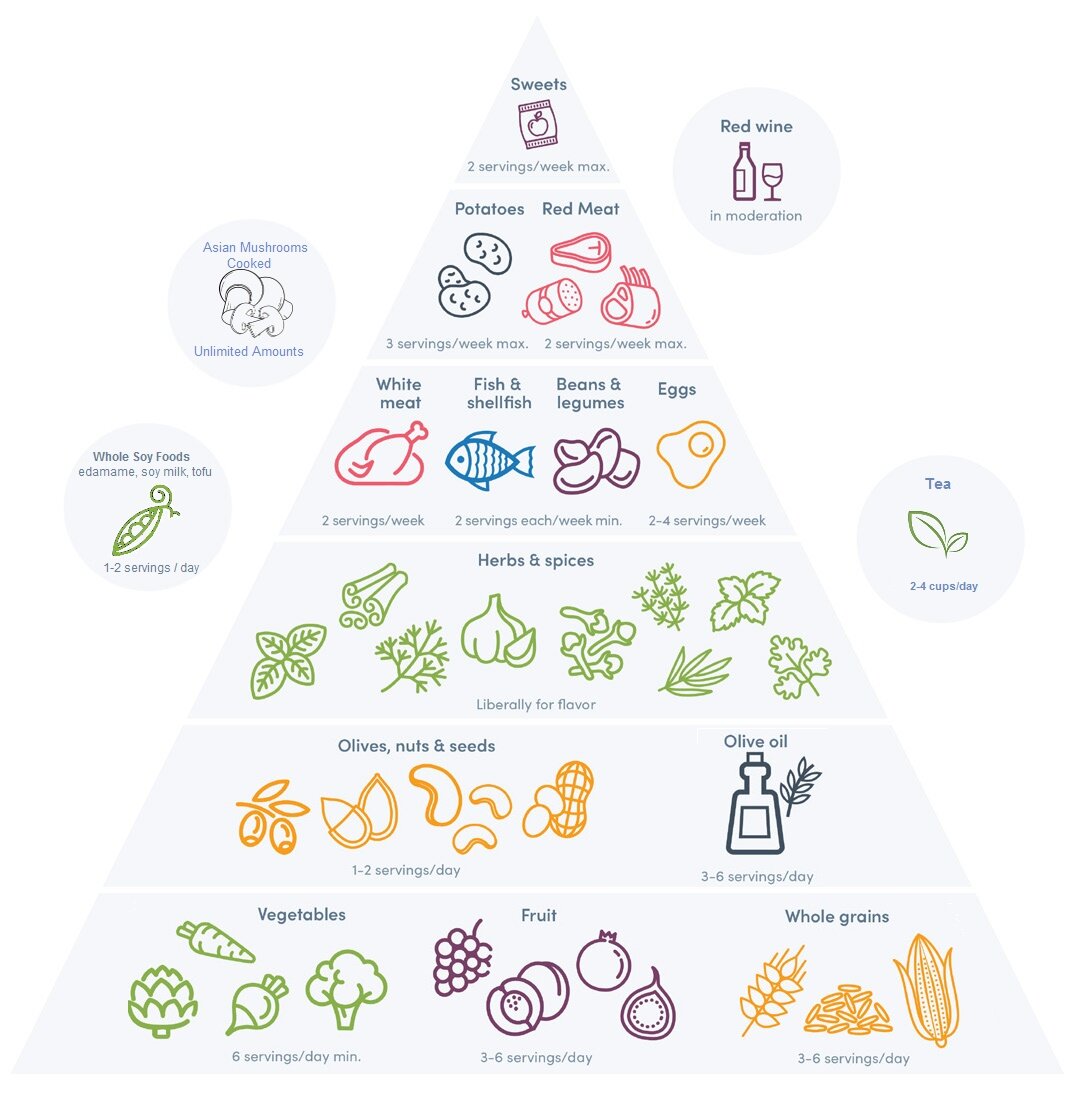The Kitchen Pharmacy
The Kitchen Pharmacy describes individually the basic therapeutic value of common herbs, spices, vegetables, fruits, and grains. A wide selection of recipes in the next section below made from natural resources are suggested to eat and enjoy, to drink, and to improve general health, but particularly for prevention of cancer, heart disease, and dementia.
Longevity and Cancer Fighting Recipes - The Anti-inflammatory diet
Understanding the role of inflammation in health emphasizes the power of nutrition to influence the inflammatory pathways. Acute inflammation is a process mediated by the immune system which is necessary for the body to repair and heal itself. However, when there is a state of "chronic inflammation", this leads to tissue damage and chronic diseases. There is overwhelming evidence suggesting that chronic inflammation is fueled by a variety of lifestyle elements, particularly diet. Examples of some of the illnesses associated with chronic inflammation include: cancer, heart disease, obesity, metabolic syndrome, diabetes, depression, Alzheimers, arthritis, asthma, and inflammatory bowel disease.
The Anti-Inflammatory Diet - This is an eating pattern that combines healthy components of traditional Mediterranean and Asian dietary patterns to maximize the healing potential of the foods included. Both cultures traditionally offer foods associated with good health and longevity. The philosophical basis for the anti-inflammatory diet is the increase of beneficial anti-inflammatory foods and reduction of pro-inflammatory foods. This leverages the growing evidence that some of the dietary components found in foods, such as fruits, berries, vegetables, nuts, whole grain, and foods of marine origin – among others, can play an important role in decreasing physiologic processes associated with chronic diseases.
“Eat food, not too much, mostly plants”
The Anti-inflammatory mediterranean diet
Following an Anti-Inflammatory Mediterranean (AIM) diet can help counteract the chronic inflammation that is a root cause of many serious diseases, heart disease, Alzheimer’s and many cancers.
The nutritional concept provided here is a healthy dietary pattern that includes abundant amounts of vegetables, fruits, whole grains, legumes, and nuts; moderate amounts of reduced-fat dairy products and seafood; and lower amounts of processed and red meat, sugar-sweetened foods and beverages, and refined grains. Such a dietary pattern does not need to limit total fat intake, but the main types of fat should be unsaturated fats from plant sources rather than animal fat.




